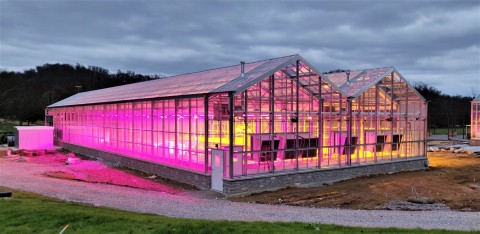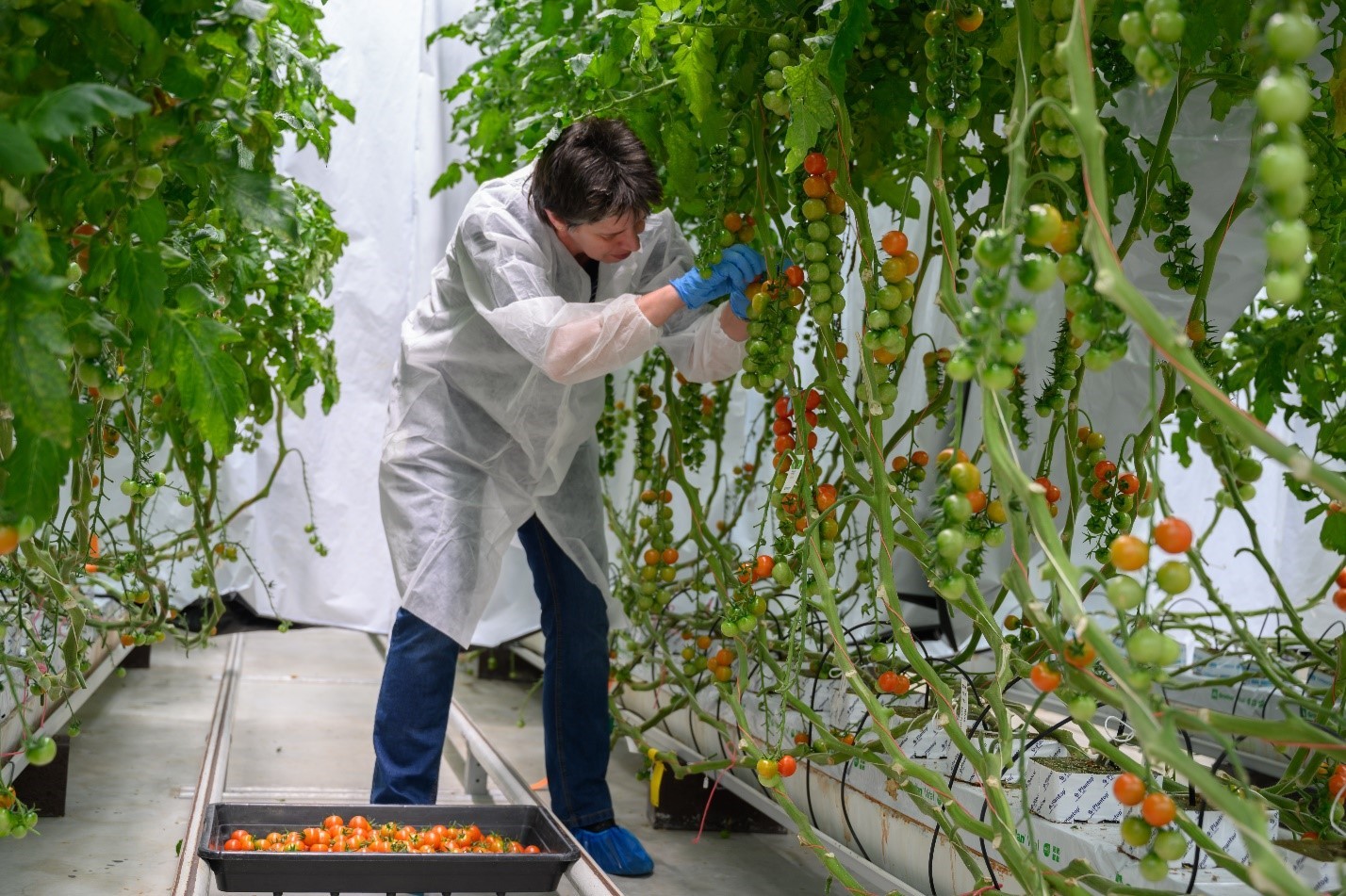Horticultural applications of LED lighting are the current trend in the lighting industry. Leading companies around the world have been developing different products to meet the increasing demands.
As worldwide need for healthy, fresh food continues to grow, greenhouse growers require efficient, effective lighting to enable year-round growing. Current, powered by GE announced the release of the Arize Element Top Light, the industry’s first one-for-one LED replacement for 1000W High Pressure Sodium (HPS) products.
The Arize Element features multiple light spectrums to maximize growth for specific crops, allowing growers to tailor the light to the specific needs of each crop. Universal installation options allow the light to be installed in dozens of different ways on existing structures, dramatically reducing installation time. The light also features a unique design that minimizes shadowing, allowing for maximum natural light penetration.

(Image: Current by GE)
Current’s expanding Arize product family is already being leveraged by urban farms across continents, from the Arize Lynk and Element installations in Big Tex Urban Farms to the 12.3km Arize Lynk luminaries embedded in the world largest high-care indoor vertical farm, Jones Food Company Ltd. in North Lincolnshire, U.K.
Meanwhile, Fluence by OSRAM, with its collaboration with Wageningen University and Research (WUR) has released initial results of a cultivation trial analyzing the viability of full-spectrum LED lighting solutions. The data showed that using Fluence PhysioSpec Greenhouse™ spectrum, in comparison to HPS greenhouse lighting fixtures, is 11% more effective in yield for certain tomato cultivars, with the added benefit of being more energy efficient.

(Image: Fluence by Osram)
Dr. Ep Heuvelink, and his team at WUR, tested PhysioSpec Greenhouse in comparison to HPS lighting from a recognized vendor. The research was conducted on Tomagino and Merlice tomato cultivars. WUR will publish the full data set later this year.
“Current practices use HPS technology as the sole source for supplemental lighting in greenhouses and the WUR trial proves this should not be the case,” said Barend Lobker, director and owner, Vortus. “Growers have been reluctant to transition to LEDs because they are uncertain if LEDs can be as effective for cultivation and the WUR trial eliminates any doubts around the capabilities of full spectrum LEDs.”
“This is a very exciting result for the application of full-spectrum LED technology in greenhouse tomato production. It demonstrates that even without any other environment optimization for LED solutions, LEDs can match, or even out-perform legacy lighting fixtures for commercial growers,” said Haris Ouzounis, horticulture service specialist and senior photobiologist, Fluence by OSRAM.





 CN
TW
EN
CN
TW
EN







